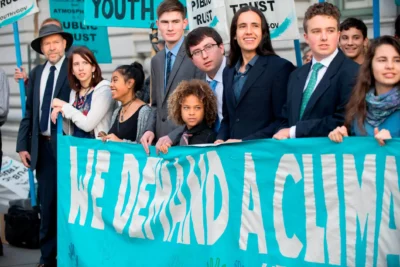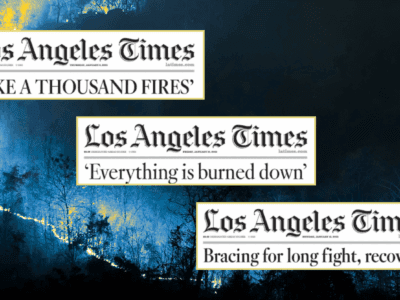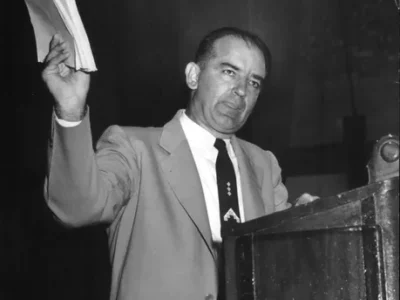Ninth Circuit Short-Circuits Juliana v. U.S. Climate Change Lawsuit
Iconic Children Plaintiffs Lack Legal Standing to Pursue Case, Court of Appeals Rules

Earlier this month, the U.S. Court of Appeals for the Ninth Circuit issued an order that likely ends one of the most closely-watched climate change lawsuits in recent American legal history: Juliana v. United States.
The background of this litigation–which was filed in federal district court in Oregon in 2015–has been analyzed at length in past Legal Planet posts authored by me and several of my Legal Planet colleagues. (Mine can be found here, here and here.). Briefly, 21 children represented by the Oregon-based non-profit Our Children’s Trust sued the federal government in U.S. District Court in Oregon. They argue that the federal government’s failure to take meaningful, concerted steps to address the existential threat of climate change violates the children’s rights under both the public trust doctrine and constitutional principles of substantive due process. The case was assigned to U.S. District Court Judge Ann Aiken, who denied numerous government procedural defenses and set the case for trial.
For the second time in four years, the Ninth Circuit has held, without addressing the merits of the plaintiff children’s lawsuit, that they lack legal standing under U.S. constitutional standards to pursue this lawsuit in federal court. The first time the Court of Appeals so ruled, in 2020, it did so in a closely-divided, in-depth decision. There, the Ninth Circuit’s majority opinion acknowledged that the plaintiffs had developed “a substantial evidentiary record that the [defendant] federal government has long promoted fossil fuel use despite knowing that it can cause catastrophic climate change, and that failure to change existing policy may hasten an environmental apocalypse.” But, the majority concluded, “[r]eluctantly…plaintiffs’ impressive case for redress must be presented to the political branches of government,” not the federal courts.
Judge Josephine Stanton, the third member of the Ninth Circuit panel, strongly disagreed, writing that “the government accepts as fact that the United States has reached a tipping point crying out for a concerted response–yet presses ahead toward calamity.” Concluding that the plaintiffs indeed have standing to bring their lawsuit, she wrote that “plaintiffs’ claims adhere to a judicially administrable standard” and that the relief they seek, “much like the desegregation orders and statewide prison injunctions the Supreme Court has sanctioned, would vindicate plaintiffs’ constitutional rights without exceeding the Judiciary’s province.”
Powerful words by both the majority and dissenting judges in those 2020 opinions.
Following that procedural setback, plaintiffs amended their complaint in an effort to eliminate the standing roadblocks the Ninth Circuit had identified in its 2020 opinion. The district judge ruled that the plaintiffs had done so successfully, denied the government’s motion to dismiss the case, and again set the case for trial later this year.
But this month the Ninth Circuit again intervened, this time in a curt four-page order–without analysis–that commanded the district court to dismiss the Juliana plaintiff’s case “without leave to amend.” That means that the Court of Appeals has once and for all blocked the Juliana lawsuit from going forward.
An important footnote to this litigation is that three successive presidential administrations–Barack Obama’s, Donald Trump’s and Joe Biden’s– have all vigorously opposed the Juliana plaintiffs’ attempts to obtain a trial on the merits of their “impressive case for redress” (according to the Ninth Circuit), instead working (successfully) to squelch the Juliana lawsuit on procedural grounds.
That result, after nearly a decade of litigation, is frustrating for the plaintiffs, their lead legal counsel Julia Olson, and supporters who have followed the case with dedication, persistence and optimism.
Nevertheless, there are some positive ramifications of the Juliana and related climate change litigation:
- Courts in several other nations have allowed similar cases to proceed, and in at least one instance found that a European government had an affirmative obligation to aggressively address climate change concerns.
- Similarly, the Our Children’s Trust organization has achieved considerably more success in pursuing claims similar to those of the Juliana case that have been filed in state courts, in reliance on state (rather than federal) law. Legal standing to bring such lawsuits is far less formidable in state courts. And several of the currently-pending state cases are bolstered by state constitutional provisions that grant their residents a right to a clean and healthful environment. The most prominent of these is Held v. State of Montana, in which a Montana trial court has ruled in favor of the young Montana climate plaintiffs. (State officials have sought review of that decision in the Montana Supreme Court, where the case is now pending.)
- Finally, sometimes today’s overruled decisions and passionate dissents are proven to be prescient and correct in future cases. It may well be that the lower court decision in Juliana by District Judge Aiken and Judge Staton’s compelling dissent on appeal will be hailed as well-reasoned and embraced by American courts in the not-too-distant future. One can certainly hope so.
Reader Comments
One Reply to “Ninth Circuit Short-Circuits Juliana v. U.S. Climate Change Lawsuit”
Comments are closed.







Juliana case is set to create jurisprudence in the climate change justice system.
it is noteworthy that climate change as at the center of those past and present administration and it is upon the government of the day to ensure that climate change justice realized to its full extent